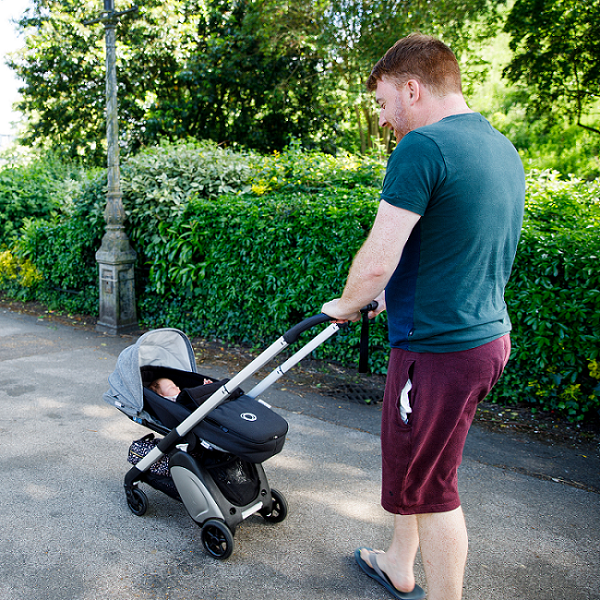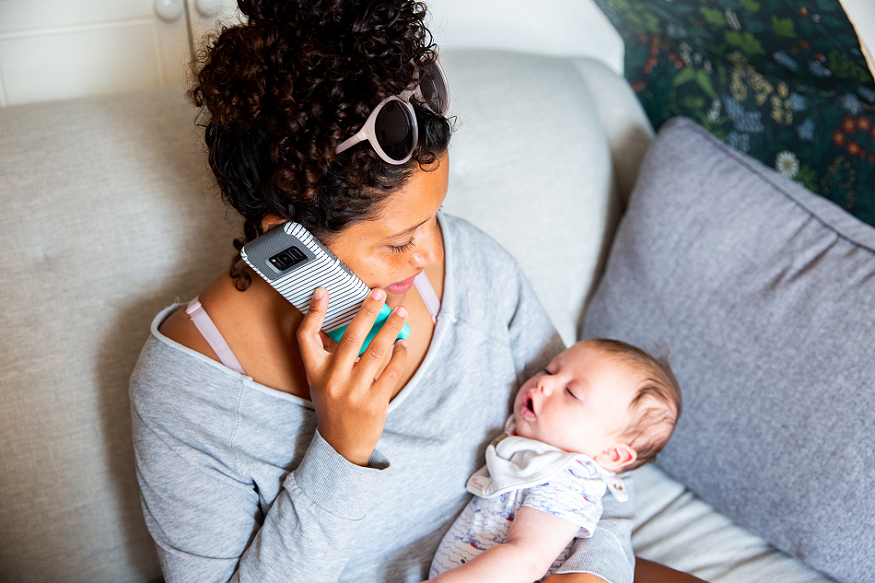
Coping with broken sleep and feeling sleep deprived is one of the toughest aspects of becoming a parent. This is even harder if you already have a child or children.
It helps if you can have realistic expectations of how babies sleep and of yourself in the early weeks and months.
Lack of sleep can affect your mental health and ability to cope, so getting rest and sleep when you can is an essential part of looking after yourself.
Newborn sleep patterns
At birth, newborns experience a huge transition from being aquatic inside the womb to becoming air breathers in the big wide world outside.
They have been part of you for 9 months and are familiar with the sound of your heart and other internal body sounds. Some babies may be tuned into your daily rhythms and are less active when you sleep but some may not be.
Newborn babies need to feed little and often. Feeding and sleeping every 2 to 3 hours is quite normal. If they are very tiny they may need to feed more frequently.
Babies are all different, so observe your baby and be guided by their cues and individual needs.
As they grow and mature they will start to sleep for longer stretches at night, and may start to sleep for 3 to 4 hours at a time, or even longer if you are lucky.
By 12 to 16 weeks their sleep begins to consolidate and they sleep for much longer stretches at night time.
From 3 to 4 months old they start to produce the sleep hormone melatonin – this is light sensitive so keeping rooms dark and quiet at night and nap times will help them to sleep better.
Your baby’s body clock
In the early weeks and months you can start to help your baby get used to a day and night pattern. This will help to regulate their body clock (circadian rhythm).
These internal rhythms respond to light and darkness and regulate important aspects of bodily function such as:
As babies don’t know the difference between day and night we can start to create these differences. Light is the main influence of this so having a shape to the day and over time creating regular times for feeding, nap times and bedtimes helps with this. As they get older this becomes more achievable.
Having a darkened quiet room for naps and bedtimes can also help. Follow your baby’s cues and do what suits you both rather than trying to follow a routine suggested by others.
Be responsive to your baby and follow your instincts. Over time a natural rhythm of sleeping, feeding and being wakeful will evolve.
Expose your baby to daylight in the morning and afternoon; include them in the hustle and bustle of your daytime activities.
A study of older babies showed that babies exposed to afternoon sunlight slept better at night. In the evenings, shift to quiet and calming activities and dim lighting.
At night, keep things dark and quiet to help establish the difference between the busy day time and the quiet night time.
When you feed your baby, speak softly and keep lights very low. Darkness is best if you can mange this.
Red based night lights can help aid sleep as white and blue light from screens inhibits the secretion of melatonin, the sleep hormone (you can use a red bulb, a red battery-operated candle or red fairy lights in a Kilner jar).
Tips for coping with tiredness


To survive the early weeks rest or sleep when your baby sleeps.
Chores can wait – you need to to sleep as much as you can.
At weekends have a lie in and catch up on as much sleep as you can.
Let others take the baby out for a walk so you can nap.
Accept offers of help, let people do chores, shop for you, cook meals or clean.
Don’t be afraid to ask for the help you need.
Have a “go to” list of family and friends you can ask for help or chat with if you are struggling.
Remember that your health visitor is there to listen and support you.
New mums often feel tired and overwhelmed – it is normal to feel like this.
Tell it like it is – no one is going to judge you!
The NHS website provides more information about helping your baby to sleep.
